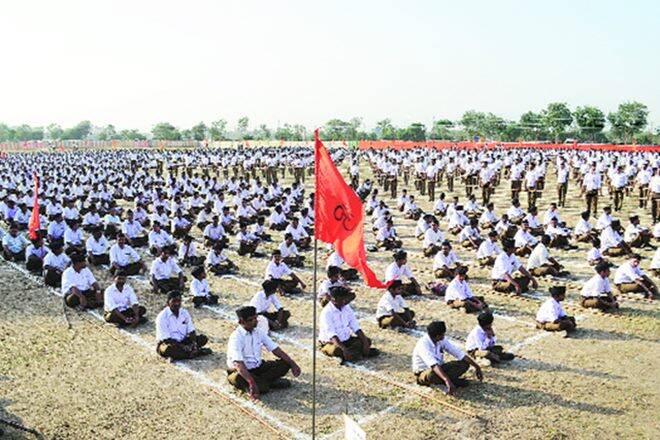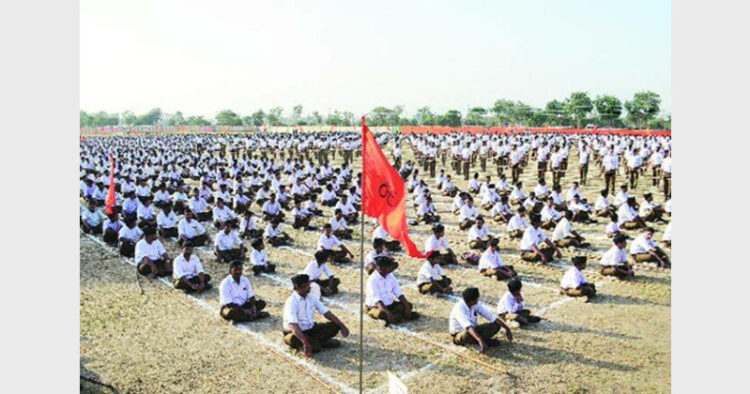“Founded in 1925 and nearing its centenary, it is still growing. Very few non-governmental organisations survive for such a long time.”

There is hardly any socio-political and socio-cultural discussion in the country without reference to the Rashtriya Swayamsevak Sangh.
Founded in 1925 in Nagpur by medical practitioner Dr. Keshav Baliram Hedgewar, it is one of those rare non-governmental organizations which has not just survived for this long but thrived.
National Executive member of the RSS, Ram Madhav, wrote about ‘The Sangh and Modernity’ in the weekly Open, published on June 18.
He said it was difficult to understand the RSS but very easy to misunderstand it. So many conspiracy theories have been floated about the Sangh by its detractors.
It is one organization that has always strengthened with time and is still evolving. “From economic policies to border challenges, from environmental issues to homosexuality debates, nothing is anathema,” for the RSS.
But the vision of the Sangh has never changed. Madhavji writes, “It has a twin vision—individual perfection at the micro-level and social cohesion and unity at the macro level.”
There has never been a tussle for power at the top. No other organization has seen such a smooth transition of power.
The most widely spread rumor about the Sangh is that it is exclusive. Nothing could be farther from the truth. Madhavji writes, “Golwalkar too was categorical in dismissing the propaganda that RSS was out to convert all to Hinduism…Indianisation does not mean making all people Hindus.”
The RSS is conscious of the challenges it faces. Elaborating on it, Madhavji opines, “The prospect of the socio-political overpowering the socio-cultural down the organizational hierarchy is not imaginary anymore, and the RSS leadership is conscious of that critical challenge.”
The next challenge for the RSS is to bring ‘systemic reform’ in the country and “strive to infuse various sectors like education, governance, jurisprudence and social systems with nobler Indian ideas.”














Comments